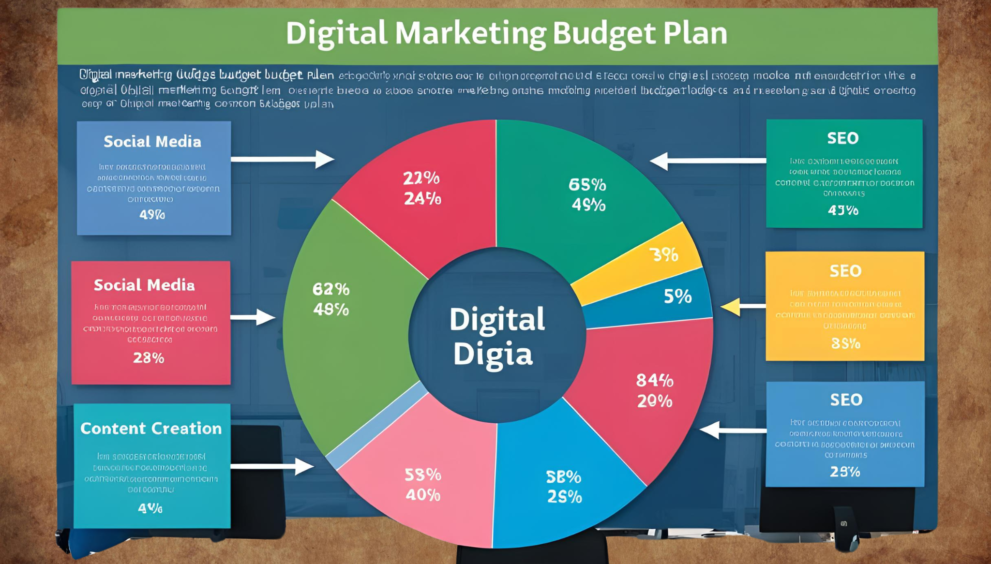Digital marketing has no shortage of potential — but it can also read like an unwieldy labyrinth of techniques, platforms and expenses. Without a clear digital marketing budget and strategy, small business owners, startup founders, and marketers alike all too often wind up spending too much money on efforts that don’t pan out, chasing trends or losing sight of ROI.
- Falling Prey to Digital Marketing Traps
- Why a Budget Prevents Unnecessary Spending on Ineffective Plans
- How to Use a Budget for Focus on the Most Effective Practices
- How to Keep the Lights on While Getting Experimental and Innovative
- Budget Management 101: Tactics and Tools
- Empowering Your Marketing Spend
This is where a digital marketing budget can be your best friend. A beacon to guide your way, informing you of data-driven decisions while focusing on what’s working — and avoiding the mistakes too common in digital marketing! You’ll understand exactly how making and following a budget can impact your marketing by the end of this post.
Falling Prey to Digital Marketing Traps
The digital marketing realm is exciting and rapidly changing, with amazing opportunities to reach out to customers. However, in the absence of strategic control, businesses are susceptible to common pitfalls.
- Guitars: Buzzwords such as “influencer marketing” or the newest paid ad platform can lead marketers to pay up without evidence of what impacts the enterprise.
- Ignoring ROI tracking: Most businesses don’t track the ROI they generate from their campaigns, resulting in money being wasted on ineffective channels.
- Failing to monitor expenses: With so many marketing channels available, you’re bound to lose track of ad spends, subscriptions, or tools—and budget leaks can happen without anyone realizing it.
- Lack of innovation: A reluctance to divert some of the budget towards trying something new can keep businesses from finding better solutions.
The good news? A clear budget can solve all of these problems.
Why a Budget Prevents Unnecessary Spending on Ineffective Plans
Having a budget will help you make better decisions about where money is going and make sure it aligns with your goals. For example, you may have somebody who has a small ecommerce business, and they want to invest money in social media ads that claim they have reach to millions. However, they later found that organic content marketing worked better to earn their audience’s attention — shifting towards authentic blog posts and email campaigns after realizing their target audience preferred it. This saved them money while increasing engagement and sales—by reallocating their spend.
This is what makes a well-crafted budget so effective. It usefully provides a framework for telling you no to strategies that may seem attractive but won’t work for your particular business.
How to Use a Budget for Focus on the Most Effective Practices
High-ROI activities are the building blocks of sustainable growth through digital marketing. But how do you identify them? Through tracking and experimentation, within the means of your budget.
In this example, a startup had equally distributed their budget between PPC (Pay-Per-Click) advertising, social media marketing, and email campaigns. Get Budget Tracking Software to Analyze Your Campaigns
Yes, these 11 emails bring in 60% of their sales. The startup was able to optimize revenue at the top of the funnel by tweaking their budget by channel to invest more into email marketing.
In fact, data indicates that content marketing generates 3x more leads and costs 62% less than traditional marketing (Demand Metric). If you budget accordingly for this high-ROI activity, you’re likely to see far better results over time.
How to Keep the Lights on While Getting Experimental and Innovative
Businesses that avoid new strategy experiments risk stagnation. Until you experiment with different methods, how will you know what might be more effective?
Think of a local restaurant that employed budgeting to try out multiple digital marketing campaigns. They reserved 15% of their monthly budget for experimentation. After testing email marketing, local SEO, and social media contests, they discovered that local SEO drove a steady increase in reservations and traffic. And had they not set aside a budget for innovating, they wouldn’t have caught this opportunity.
Data backs your experimentation and your need to have it too! According to Deloitte, companies that take risks with channels are 35% more prone to being revenue-growing companies. Just allocating a small part of your budget to testing can make way for strategies that have performed and brought in money.
Budget Management 101: Tactics and Tools
It’s one thing to create a Digital marketing budget and quite another to adhere to it. Here are some tools and methods that will help you accomplish this:
Tools for Budget Management
- Google Sheets or Excel: Great for keeping track of expenses manually for small businesses.
- Automated Campaigns and ROI Measurement → Marketing Automation Platforms (e.g., HubSpot, Marketo): Automates campaigns and measures ROI for total budget visibility.
- Expense Tracking Apps (QuickBooks, Expensify, etc.): Maintain detailed records of all your outgoing payments.
- Analytics Tools (e.g., Google Analytics, SEMrush): Provide insights on campaign performance, ensuring the ROI is trackable.
Strategies for Keeping on Budget
- Begin with a clear goal: Set your KPIs early, and ensure all spending targets are met to these objectives.
- Document every expense: Those $50-a-month charges for a subscription tool add up. Monitor every dollar to prevent small costs from snowballing.
- Re-evaluate based on performance: Periodically assess your strategy and redistribute funds according to what works.
- Benchmark your spend: Compare with industry averages to see if you’re overspending.
Real-World Example:
A marketing professional who used QuickBooks to track costs and Google Analytics to evaluate ROI. When they tracked these tools closely, they found their investment in YouTube ads wasn’t being returned, leading them to redirect their resources into LinkedIn ads. The result? A 40% improvement in ROI.
Empowering Your Marketing Spend
For any small business, startup or even marketing team, digital marketing is a must investment — but without a budget, it can become a black hole of your cash. Detailed budgets help you protect your business against overspending, narrow your focus on what works well, and allow space to test new ideas.
A framework like this is essential for both new marketers and well-seasoned marketers and owners, as it will help ensure every marketing dollar is used towards achieving your success! It’s time to take control of your digital marketing finances and put your business on the path to measurable growth.
Take small steps, measure everything and don’t be afraid to iterate and adjust. Want help getting started with digital marketing budgeting? Ask your questions in comments or check out our 50States financial management toolkit.



